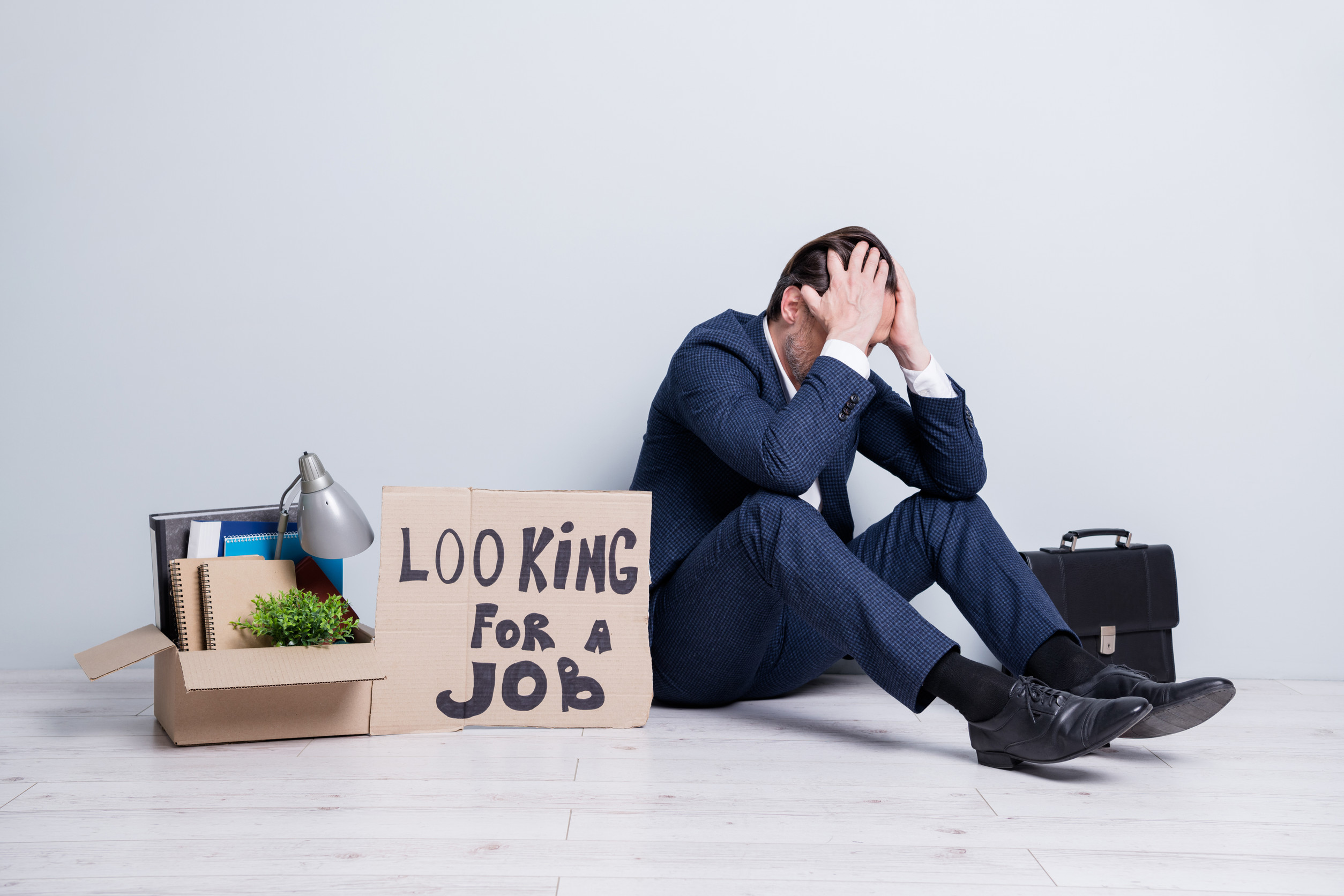
Image Source: 123rf.com
In today’s economy, many people experience financial difficulties, job instability, and rising costs of living. However, if you find yourself constantly struggling with basic needs, mounting debt, or deteriorating mental health, you may be facing more significant challenges than most Americans. Recognizing these warning signs can help you take proactive steps toward finding solutions. Here are 10 indicators that suggest you’re having a harder time than the average person.
1. Your Paycheck Is Gone Before the Month Ends
Earning a paycheck should provide financial stability, but if your money disappears before the month is over, you may be struggling more than the average American. Living paycheck to paycheck is common, but when you’re constantly choosing between paying rent, utilities, or groceries, it’s a sign of deeper financial distress.
A 2024 report revealed that nearly 60% of Americans live paycheck to paycheck, yet many still manage to save or cover emergencies. If you have no buffer and every dollar is spent the moment it comes in, it’s time to assess your spending, explore ways to boost income, or seek financial assistance programs that can help you break the cycle.
2. Escalating Debt Levels with No End in Sight
Debt is a common issue, but if your balances keep growing while your payments barely make a dent, you’re in a financially dangerous cycle. In 2024, Americans collectively held over $1.2 trillion in credit card debt, with interest rates at record highs.
If you find yourself using credit cards to cover everyday expenses because your paycheck doesn’t stretch far enough, it’s a sign that your financial struggles are more severe. Without intervention, mounting debt can lead to collection calls, wage garnishments, and long-term financial damage. Seeking debt consolidation options or financial counseling can help you regain control.
3. Inability to Cover Unexpected Expenses
If an unexpected expense would force you to take out a loan, max out your credit card, or borrow from family, you’re financially overextended. Recent reports indicate that nearly 23% of Americans have past-due medical bills because they simply couldn’t afford the costs upfront.
The inability to absorb even small financial shocks is a sign that you’re struggling more than the average American. Finding ways to build even a small emergency fund—by automating savings or cutting small luxuries—can help you feel more secure.
4. Declining Mental Health Due to Financial Stress
When money troubles dominate your thoughts, leading to sleepless nights, anxiety, or depression, it’s more than just a rough patch—it’s a serious concern. A 2024 survey revealed that 43% of U.S. adults reported higher anxiety levels compared to the previous year, with financial worries being a top stressor.
Chronic stress over bills, debt, or job insecurity can impact physical health, relationships, and overall well-being. If financial stress is taking a toll on your mental health, seeking support from a therapist or financial advisor can help you develop coping strategies and solutions.
5. Struggling to Maintain Stable Employment

Image Source: 123rf.com
Job insecurity or chronic underemployment can be a significant indicator that you’re struggling more than most Americans. While the U.S. economy grew in 2024, many individuals still face layoffs, reduced hours, or jobs that don’t pay a livable wage.
If you’ve been stuck in a cycle of unstable jobs with little career growth, it may be time to explore new opportunities, skill-building programs, or alternative income streams. Long-term unemployment or stagnant wages can make it nearly impossible to get ahead financially.
6. Housing Instability and the Fear of Eviction
Housing costs have skyrocketed, leaving many Americans struggling to keep a roof over their heads. If you’re behind on rent, facing eviction, or living with family because you can’t afford your own place, you’re in a more precarious position than most. The number of unhoused individuals in the U.S. has increased significantly, with rising rental prices being a major factor. Affordable housing programs, rent assistance, or budgeting for a lower-cost living arrangement could help stabilize your situation.
7. Avoiding Medical Care Due to High Costs
Skipping doctor visits, ignoring prescriptions, or delaying medical care because you can’t afford it is a major sign of financial hardship. Despite healthcare reform, millions of Americans remain uninsured or underinsured. In 2024, 12% of adolescents and nearly 5% of adults reported serious mental health concerns but didn’t seek treatment due to costs. If you find yourself neglecting your health because of financial barriers, researching low-cost clinics, government programs, or employer health benefits may help.
8. Social Isolation Due to Financial Struggles
When money problems make you withdraw from friends and family, it’s a sign that financial stress is impacting more than just your bank account. Social isolation can lead to worsening mental health, depression, and anxiety. Studies show that those facing financial difficulties are more likely to feel disconnected and ashamed, making it harder to ask for help. Finding free or low-cost ways to engage with loved ones can help you maintain social connections while working through financial hardships.
9. Relying on Credit Cards for Everyday Essentials
Using credit cards as a lifeline for groceries, utilities, and rent is a sign that your expenses are outpacing your income. In late 2024, credit card debt surged as Americans struggled with inflation and rising living costs. While credit can be a useful tool when managed properly, relying on it to cover necessities often leads to financial disaster. If you’re only making minimum payments while your balance grows, it’s time to explore debt repayment plans or additional income sources.
10. Feeling Hopeless About Your Financial Future
One of the most significant signs that you’re struggling more than most Americans is the overwhelming belief that things will never improve. If you’ve lost motivation, stopped looking for financial solutions, or feel trapped in your circumstances, it’s crucial to seek help. Financial counseling, community assistance programs, and mental health resources can provide guidance and support. Recognizing the problem is the first step toward reclaiming control and making a plan for a more stable future.
Support Can Make A Difference
Seeking support and exploring financial resources can make a significant difference. If you identify with multiple signs on this list, taking proactive steps—whether through budgeting, side gigs, or professional counseling—can help you move toward stability and relief.
Do you feel like you’re constantly struggling in life, while others are doing well? Have you searched for help? We’d love to hear your story in the comments below.
Read More:
Friendship Debt: 8 Personal Reasons Your Friends Aren’t Paying You Back
Why Did He Do That? 10 Reasons He Dumped You (Yes, One is Financial)!

Latrice is a dedicated professional with a rich background in social work, complemented by an Associate Degree in the field. Her journey has been uniquely shaped by the rewarding experience of being a stay-at-home mom to her two children, aged 13 and 5. This role has not only been a testament to her commitment to family but has also provided her with invaluable life lessons and insights.
As a mother, Latrice has embraced the opportunity to educate her children on essential life skills, with a special focus on financial literacy, the nuances of life, and the importance of inner peace.
Leave a Reply